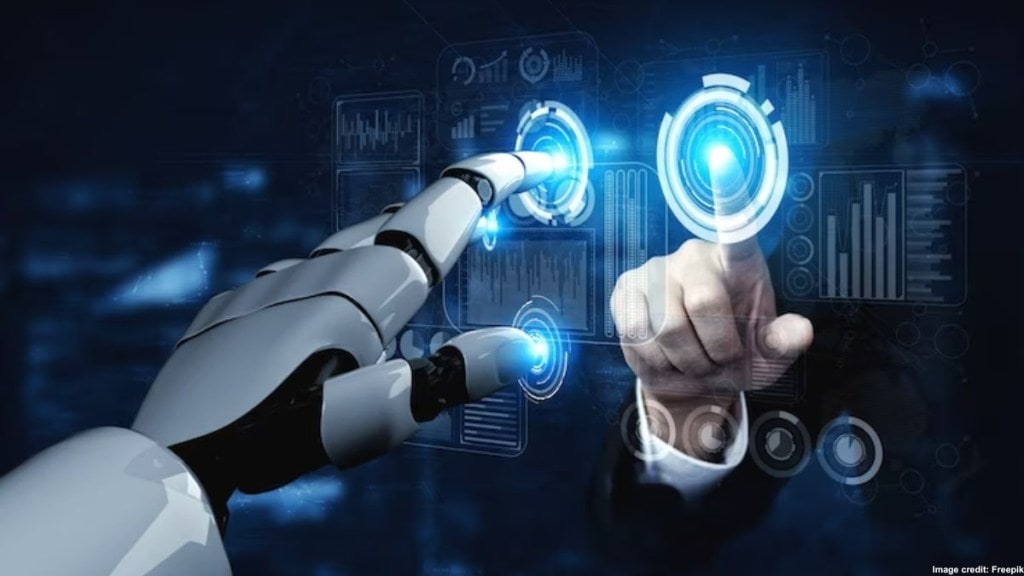By Nikhil Mathur
The healthcare industry has exemplified an unwavering dedication to embracing avant-garde technologies with the aim of elevating patient care, refining the precision of diagnostics, and simplifying the intricacies of treatment protocols through years. This steadfast commitment to progress has engendered an evolution that continues to resonate with profound impact. In recent times, two remarkable forces, robotics and automation, have emerged as transformative stalwarts, propelling the healthcare sector into uncharted realms of possibility and redrawing the boundaries of medical excellence.
Non-Communicable Diseases and Automation Risk Calculator
The integration of robotics and automation has not only impacted surgical procedures and diagnostics but has also revolutionized the way non-communicable diseases are managed. Through the implementation of automated questionnaires and risk checkers, healthcare professionals can swiftly assess a patient’s risk factors for various non-communicable diseases. Automation risk calculators provide accurate and efficient evaluations, enabling early interventions and personalized care plans.
Wearable Devices for Continuous Monitoring
Moreover, the paradigm shift brought about by robotics and automation extends beyond hospital walls. Wearable devices equipped with advanced sensors allow for continuous monitoring of patient’s vital signs, providing real-time data to healthcare providers. This innovation proves especially beneficial in chronic disease management, as doctors can track patients’ conditions remotely and intervene promptly in case of any alarming changes.
Automated Clinical Pathways and Drug Interaction Alerts
Clinical pathways, integral to guiding patient care journeys, have also undergone automation enhancements. As patients’ information is inputted, automated systems analyze data to calculate personalized risk levels and recommend appropriate clinical pathways. Furthermore, automation technology detects potential drug interactions swiftly, providing immediate alerts to healthcare professionals and preventing adverse reactions. The ascendancy of robotics and automation within healthcare heralds a renaissance, encapsulating not just technological advancement but a profound shift in the very approach of medical professionals.
Enhanced Surgical Precision
Robotic-assisted surgeries have not only redefined surgical precision but have also brought about significant benefits for patients. These advanced procedures often result in reduced blood loss, leading to a safer surgical experience. Additionally, the enhanced accuracy and precision provided by robotic systems contribute to faster recovery times and shorter hospital stays. Patients undergoing robotic-assisted surgeries tend to experience less trauma due to the minimally invasive techniques employed, resulting in decreased post-operative pain and discomfort. These combined advantages translate to improved overall patient outcomes and satisfaction, marking a remarkable stride forward in the realm of modern healthcare.
Telemedicine and Remote Care
Automation in healthcare extends beyond the operating room, encompassing areas such as telemedicine and remote patient monitoring. Robotic systems and automated platforms enable healthcare professionals to remotely assess patients, offer consultations, and monitor vital signs in real-time. This is particularly valuable in rural or underserved areas where access to specialized medical care might be limited. Patients can receive expert guidance without the need for extensive travel, while doctors can monitor chronic conditions more closely, leading to proactive interventions.
Labour and Efficiency
The integration of automation in administrative tasks has led to significant improvements in the efficiency of healthcare systems. Administrative processes, such as appointment scheduling, billing, and record-keeping, can be automated, reducing the burden on administrative staff and minimizing errors. This enables healthcare professionals to focus more on patient care and medical decision-making, ultimately leading to improved patient experiences.
Drug Discovery and Research
Within the sprawling landscape of medical research and drug discovery, a shift has been catalyzed by the fusion of robotics and automation. These transformative forces have ignited an innovation that reverberates across laboratories and pharmaceutical companies alike. Robotic systems assume the role of trailblazers, orchestrating high-throughput screenings of potential drug compounds with unrivalled efficiency. Enter robotics, equipped with the capacity to engage in high-throughput screenings of a scale previously unattainable. Thousands of potential drug compounds are subjected to rapid and rigorous testing, an endeavour made possible by the unflagging diligence of robotic entities.
Challenges and Considerations
While the integration of robotics and automation in healthcare offers numerous benefits, it also presents challenges that need to be addressed. One critical concern is the potential displacement of human jobs. As automated systems take over routine tasks, there is a need for reskilling and upskilling the healthcare workforce to ensure they can adapt to the changing landscape. Additionally, issues related to data privacy and security must be carefully managed to protect sensitive patient information.
The Road Ahead
The impact of robotics and automation in healthcare is set to continue evolving as technology advances and becomes more sophisticated. The development of smarter, more intuitive robotic systems, coupled with advancements in artificial intelligence and machine learning, will likely lead to even greater improvements in patient care, diagnosis, and treatment.
As healthcare professionals and technology developers collaborate to overcome challenges and harness the potential of robotics and automation, the future of medicine looks promising. Patients stand to benefit from safer, more accurate surgeries, remote care options, and streamlined administrative processes. The healthcare industry is on a transformative journey, where technology meets compassion to create a healthier and more efficient world for all.
The author is chief of medical services, CARE Hospitals Group









